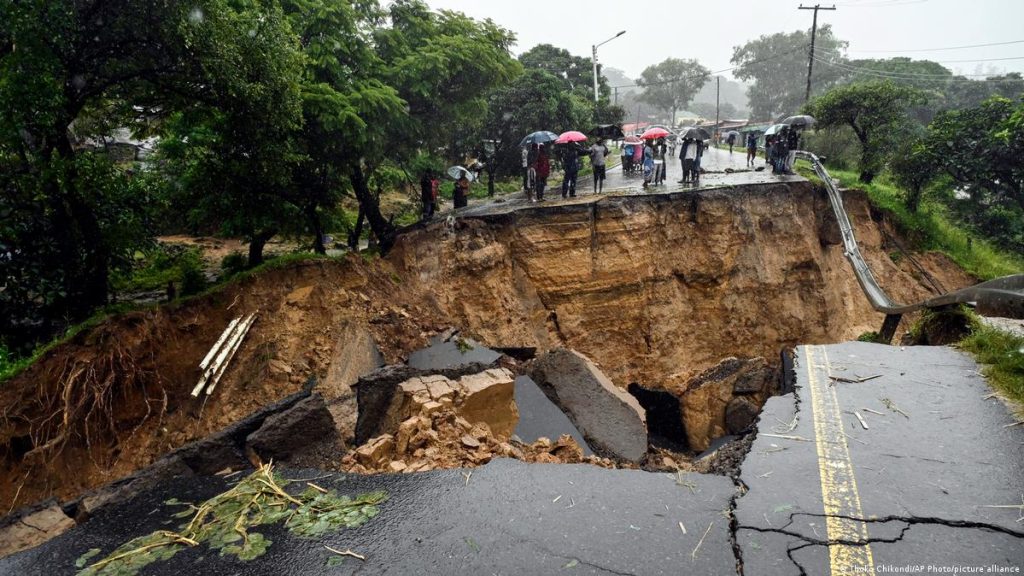In March, Cyclone Freddy dumped six months’ worth of Malawi’s rainfall amount in six days.
The longest-lasting cyclone left streams bursting their banks, inundating Lake Malawi and the Shire River, its sole outlet.
Such Cyclone Freddy devastation will impact on GDP
From the Songwe River in Karonga to the Shire that splits Mbaluku location in Mangochi, passers-by are puzzled by the surging water flowing to the Indian Ocean via Shire and Zambezi rivers as waterside resorts now stand precariously within a thin divide from tragedy.
The rainstorm destroyed homes, crops, livestock and tourism structures located too close to water bodies, against water management laws.
However, the rising levels have recharged Chipoka Port in Salima, which more than halved its operations for more than five years due to falling levels.
Similarly, Electricity Generation Company requires increased outflows through the Shire to boost power generation for the national grid at Nkula Tedzani and Kapichira.
This is the other side of the tragedy typified by the rainstorm that affected 2.2 million people in the Southern Region.
Cyclone caused a lot of floods and damage
In January last year, Cyclone Ana triggered severe flooding that damaged the 130-megawatt Kapichira Hydropower Station in Chikwawa, dimming a third of the country’s power output. This plunged the nation into ceaseless blackouts until it was fully repaired this month.
“Where, when and how much rain falls can affect people’s health and livelihoods,” the 2018 Unesco handbook warns.
The lake has hit the highest level since 2010, reports the National Water Resources Authority (NWRA).
It urges developers along the largest lake to contact the water authority for guidance to prevent consequences of overflow on the shore.
“The continued increase would mean that the country has adequate reserves of water resources to satisfy various economic uses along the lake as well as along the Shire River like generation of hydro power, irrigation, navigation and recreational among others,” the authority states.
Its director of water resources development and management Toney Nyasulu says the swings in the lake’s water levels have both positive and negative socio-economic implications.
The lakeside tourist resorts bear the brunt of the upsurge as one-time dry land is now waterlogged.
In Nkhata Bay, a temporary jetty built nearly five years ago lies under water.
However, its misfortune is Chipoka’s opportunity to resume operation curtailed by falling water levels.
The strategic port connected to a railway harbours both passenger and cargo vessels sailing from Tanzania via Chilumba and Nkhata Bay.
Nyasulu attributes the lake’s surge to heavy rains and effective controls at the Kamuzu Barrage in Liwonde Town.
The levels have been on the rise for over five years, mostly due to high rainfall.
Last month, it rose by nearly a metre over the annual mean level recorded 24 months ago.
A study by Cosmo Ngongondo, a professor of earth science at the University of Malawi, found that rainfall pattern alone does not influence lake levels, but also evaporation, inflowing discharge and low frequency climate variability such as the Eli Nino of 2016.
More than 200 streams feed Lake Malawi, but its primary inflow is Ruhuhu River from Tanzania, which reportedly contributes 12 percent of the water.
Some data show that rivers from Tanzania contribute 44 percent to Lake Malawi levels, with Malawi’s injecting 46 percent and Mozambique’s pouring 10 percent.
But Nyasulu retorts that Tanzania contributes over half of the lake’s water while Mozambique brings in five percent.
“Rivers in Malawi pour in slightly lower than half of the total contribution,” he retorts.
The third-largest inland freshwater lake in Africa plays home to more than 700 fish species, especially cichlids that attract tourists and foreign earnings.
The lake is the world’s fourth deepest lake experiences abrupt swings in stormy conditions.
In 1959, dazed Scottish missionary explorer David Livingstone christened it the Lake of Stars.
However, the nation needs to adapt to its fluctuating levels for a better future.
The post Another side of rising waters first appeared on The Nation Online.
 Moni Malawi
Moni Malawi 

